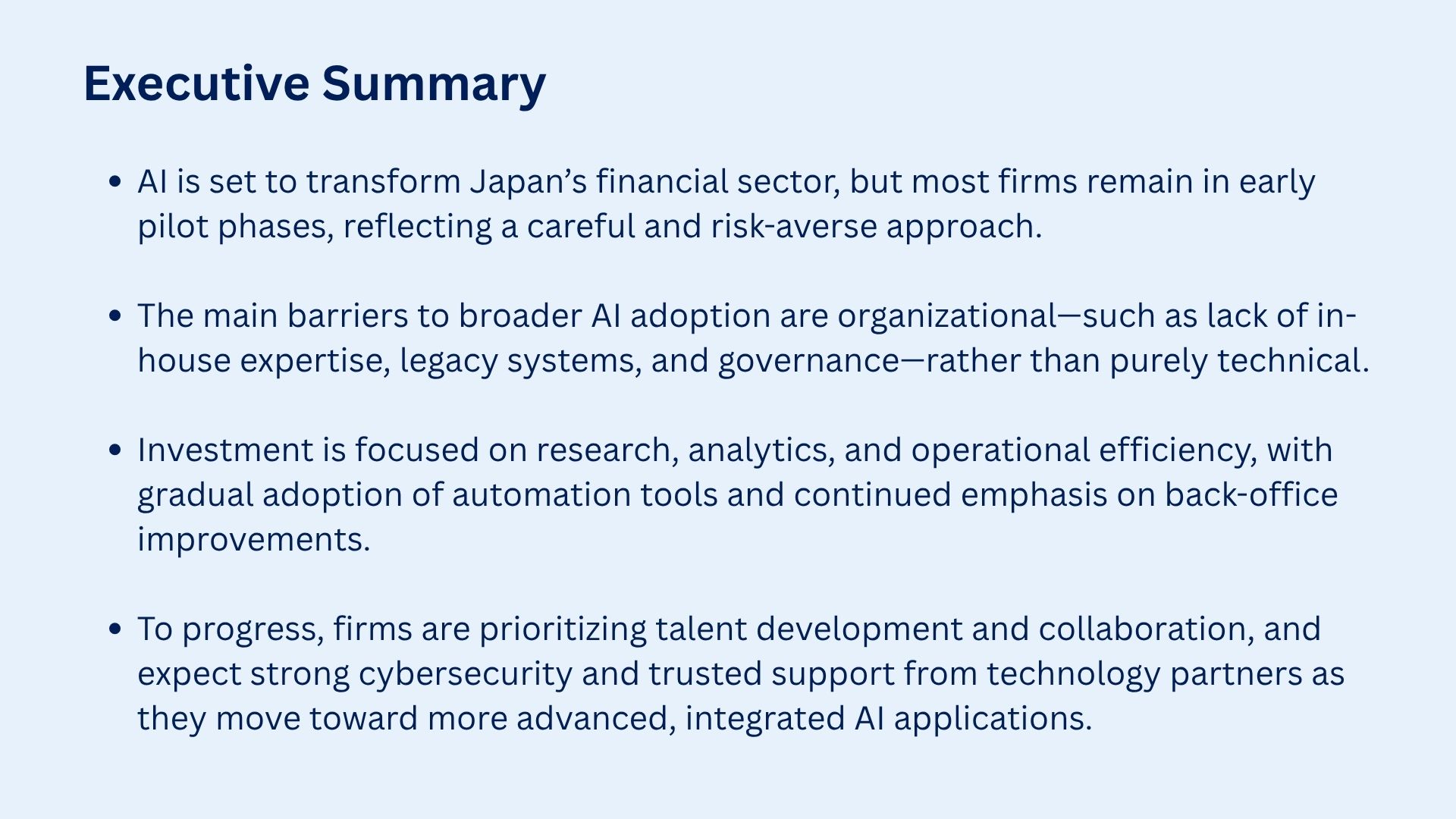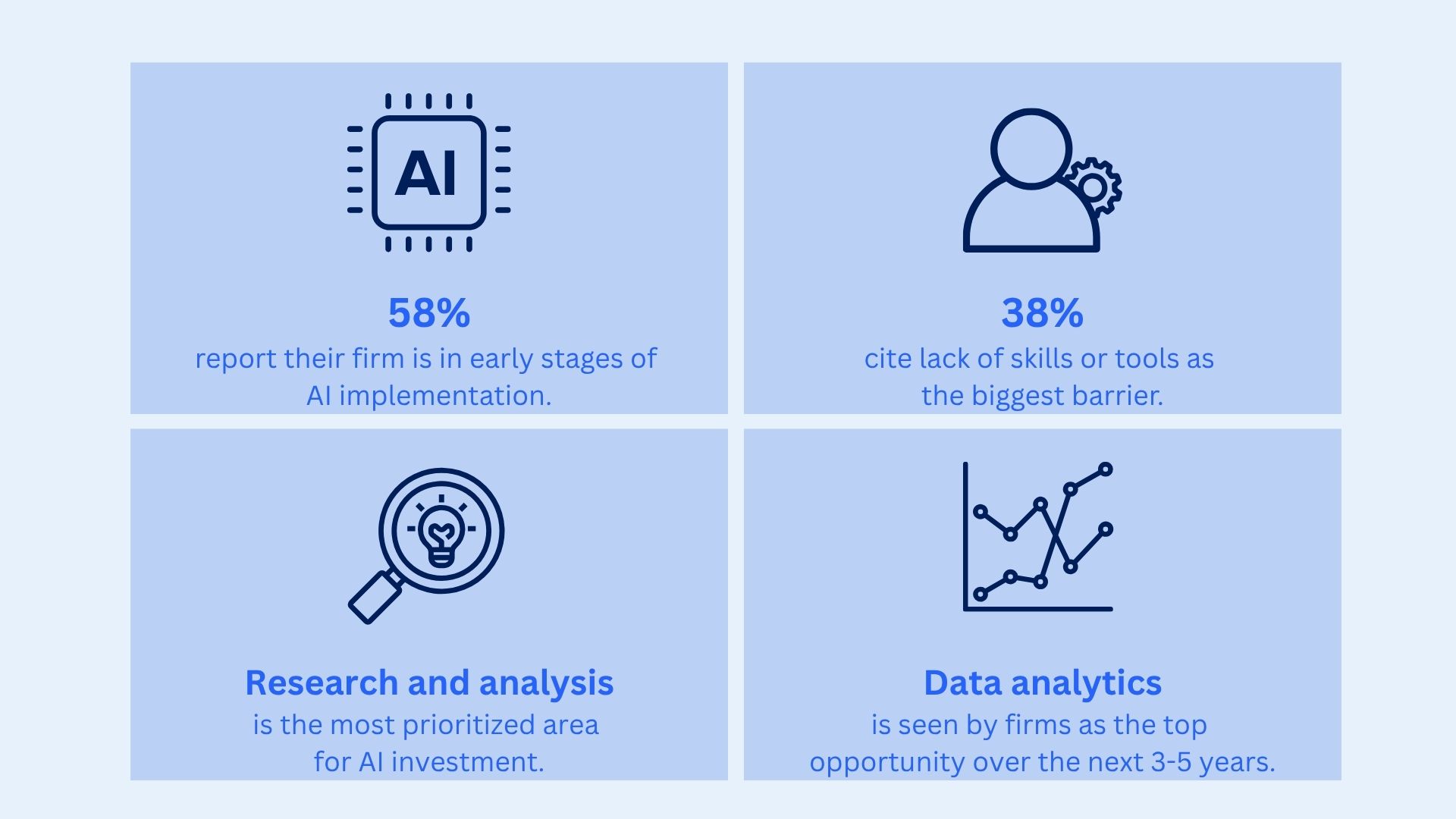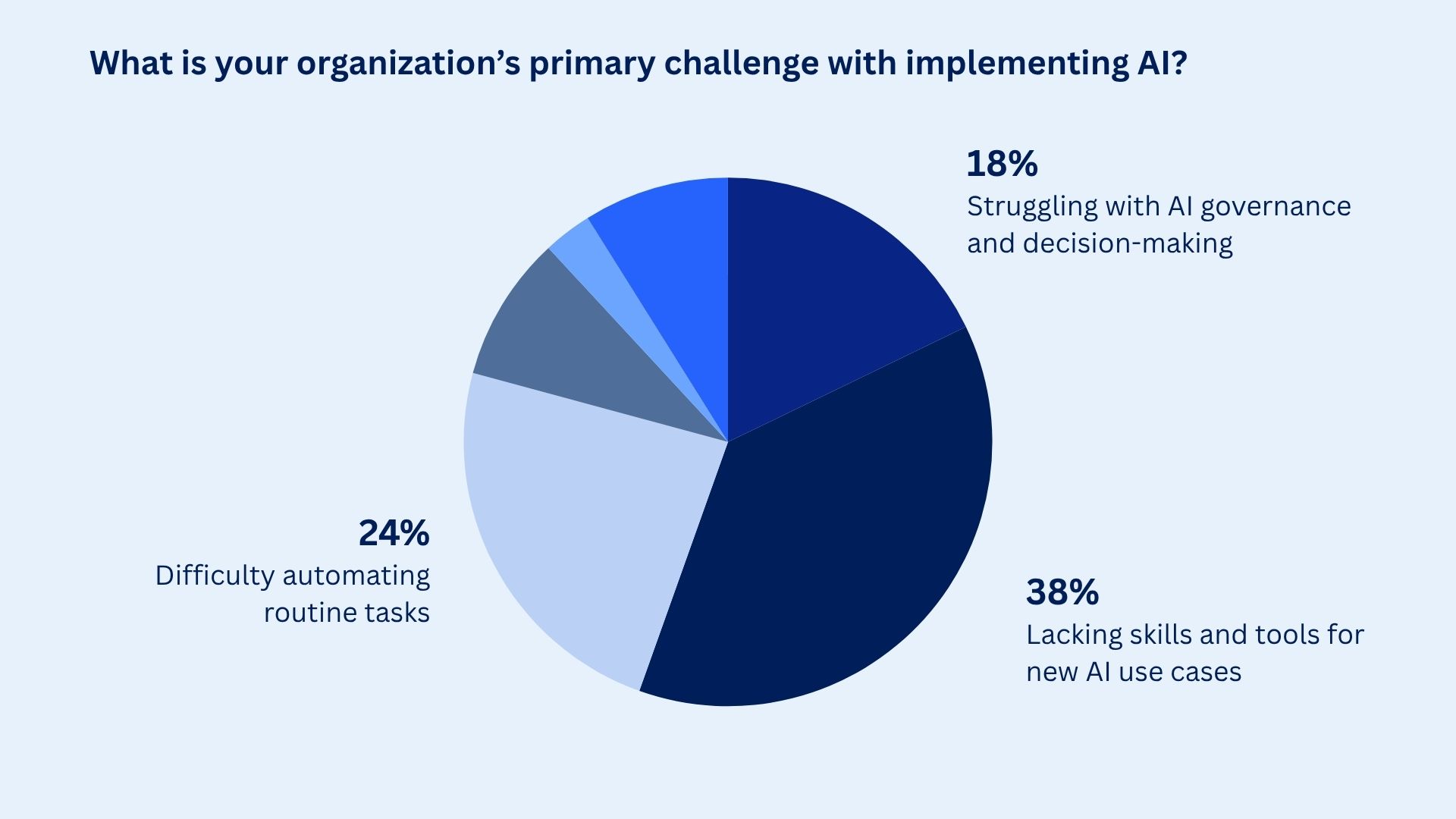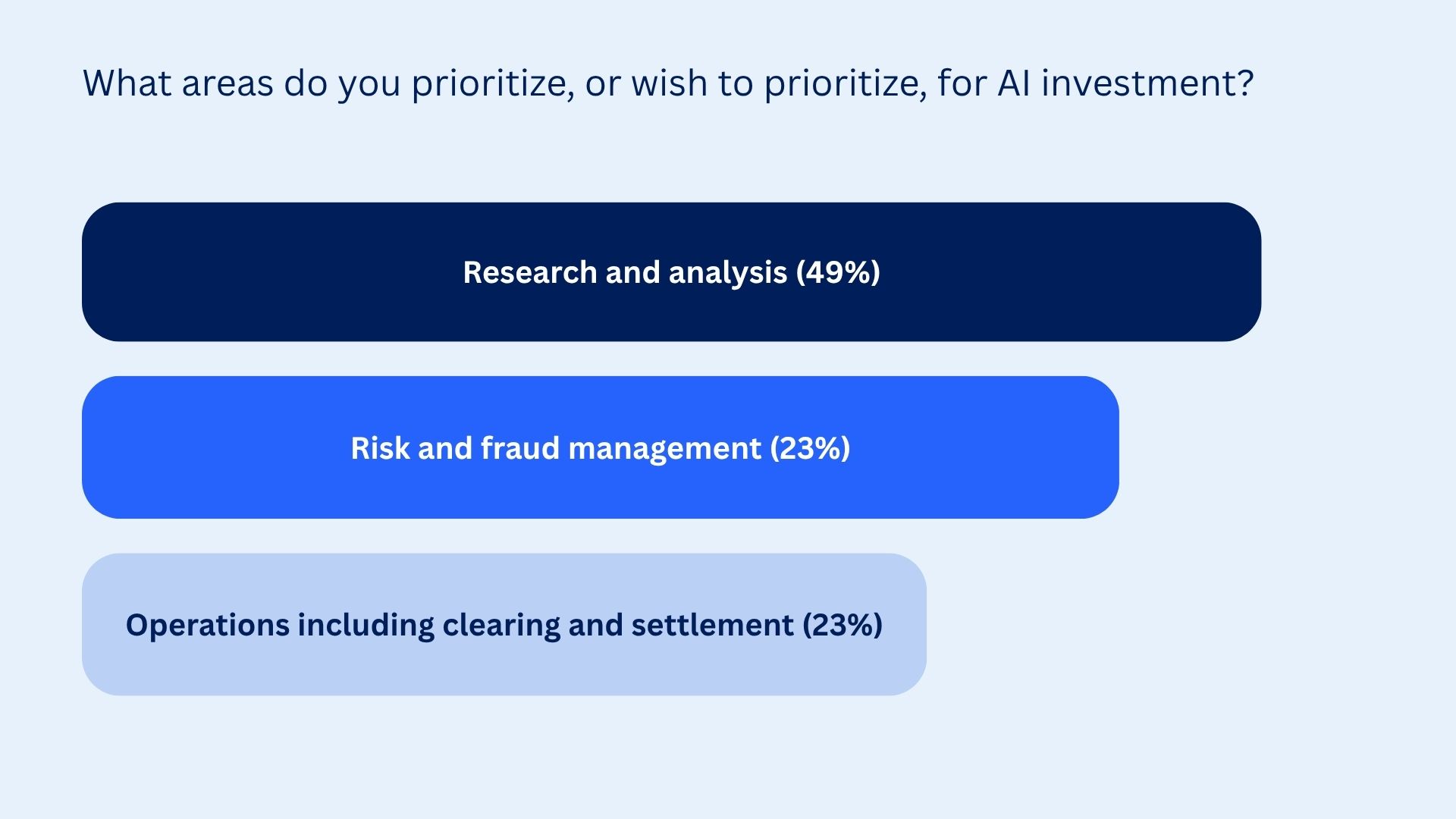Bridging the Gap: Building Skills and Collaboration
To overcome these barriers, firms are prioritizing investments in their people. Employee training and improving AI literacy have emerged as the most popular path forward, as reflected by the survey’s top response. Organizations also recognize the importance of cross-department collaboration and strong executive sponsorship to drive meaningful change. Upgrading the underlying technology stack is seen as less critical, underscoring the belief that successful digital transformation in Japan depends as much on talent and culture as on new tools.
Recent trends show that more intuitive, AI-driven operations platforms are making back-office roles more attractive and sustainable by automating repetitive work and empowering teams to focus on impact. The ability to use natural language tools and agent-based automation is helping operational staff move from routine lookups and exception management to higher-value activities.
Vendor Expectations: Trust, Security, and Support
Cybersecurity remains paramount for Japanese firms assessing technology partners, especially against the backdrop of escalating cyber threats, past global system outages, and persistent market volatility. Beyond security, organizations increasingly value digital transformation consulting and expect ongoing, responsive support, signalling a preference for enduring, collaborative relationships over transactional engagements.
As adoption of digital workers and generative AI gathers pace, firms place a premium on trusted, carefully orchestrated implementations—emphasizing robust data protection and well-defined governance frameworks. Technology vendors able to deliver secure, interoperable solutions—anchored by unified data models that maintain data integrity across disparate systems—will be best positioned to win confidence and capture market share in Japan’s evolving digital landscape.
AI’s Promise
Looking forward, Japanese organizations see the greatest value of AI in advanced analytics and better decision-making, with operational efficiency and cost reduction also ranking highly. An example of such an advanced analytics tool is Broadridge’s post-trade processing platform which now incorporates GenAI-powered analytics, utilizing generative AI and natural language processing to instantly generate reports, visualize data, and summarize key insights.
Meanwhile, predictive AI agents and automation tools are beginning to shift operations from reactive to proactive, from resolving settlement fails after the fact to preventing them altogether— illustrating a new pathway to sustainable operational advantage.
Progress at Japan’s Own Pace
The Japanese financial sector continues to take a measured, partnership-driven approach to AI, while remaining particularly cautious about the technology’s underlying cybersecurity. The next few years will likely see gradual expansion of pilots in research, analytics, and back-office functions, underpinned by investments in talent and governance. For technology vendors, long-term success will depend on providing robust cybersecurity and reliable advice on how to effectively use these AI tools.
In Japan, incremental progress may not grab headlines—but it promises a robust and resilient future for AI in finance, helping firms achieve operational agility and “operational alpha” by embedding intelligence into every layer of the operation.
Based on Broadridge’s 2025 survey from the Japan International Banking & Securities System Forum.





